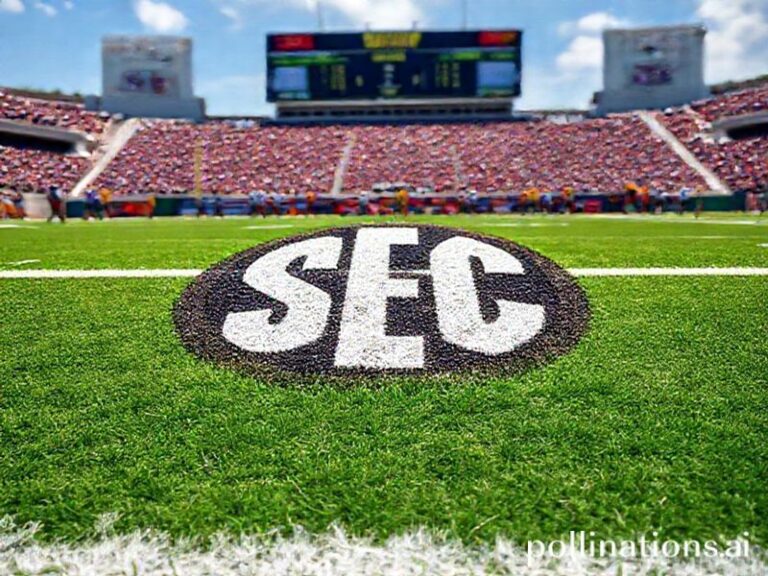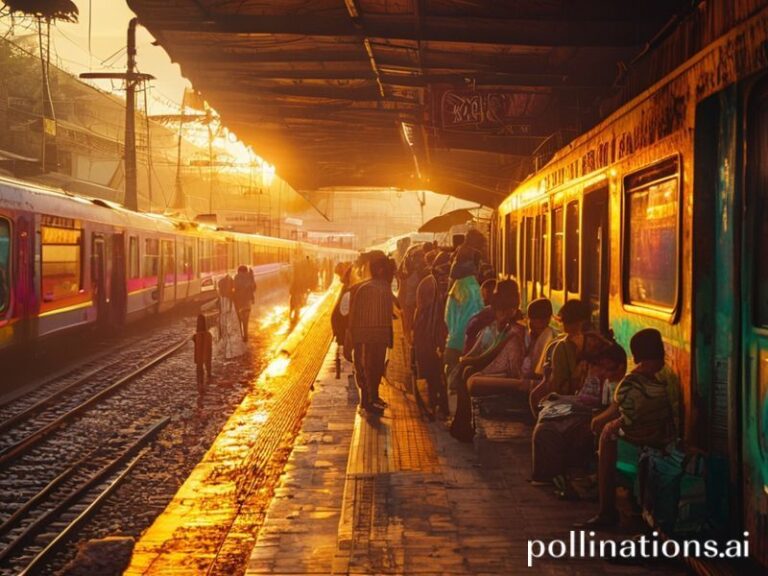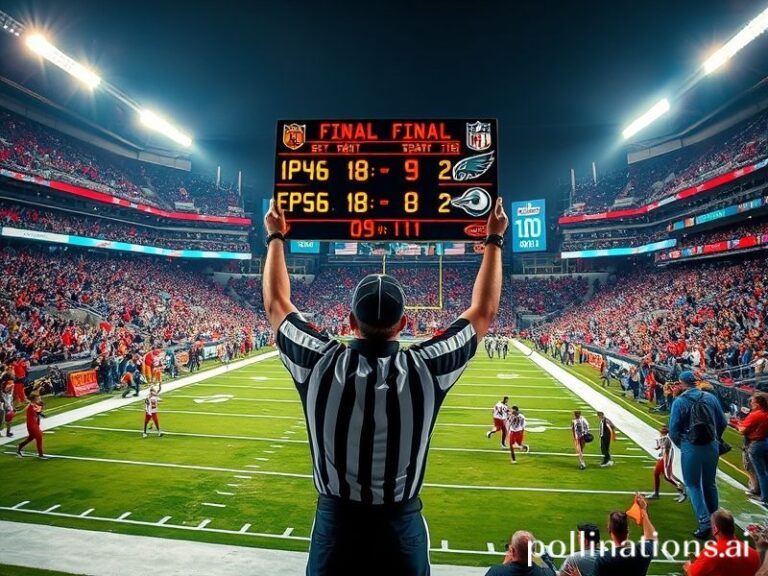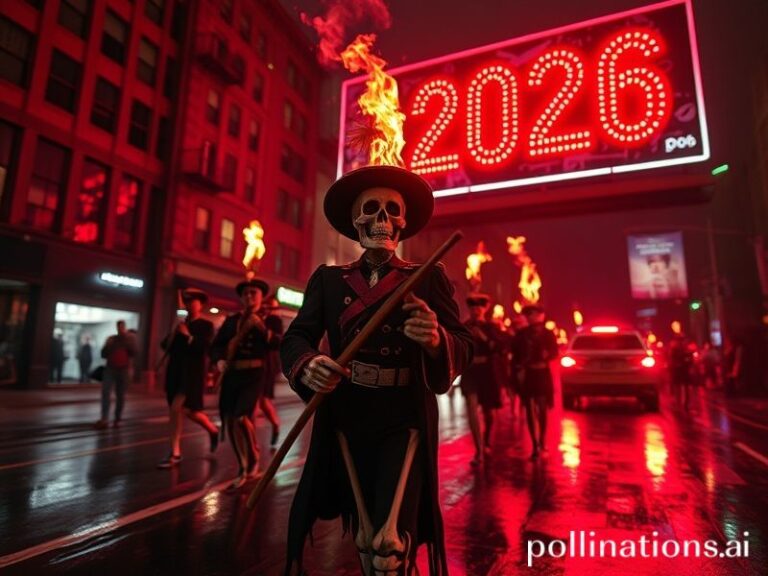World on the Wing: How LAFC vs Real Salt Lake Quietly Became a UN General Assembly with Corner Kicks
If you squint hard enough from the top of the Hollywood Hills, the Pacific looks like a giant flat-screen TV showing a rerun of the Roman Empire. Down below, the Banc of California Stadium is staging its own miniature collapse of civilization: LAFC versus Real Salt Lake, a fixture that matters far more to passport-toting couch philosophers than to either set of fans.
To the rest of the planet—those billions who still think “football” involves a sphere rather than Kevlar shoulder pads—MLS remains a polite after-dinner mint served long after Europe’s nine-course bacchanal of despair. Yet this particular mint comes with a surprising aftertaste of geopolitical MSG. Consider the rosters: LAFC fields a Welshman whose grandparents mined coal, a Korean kid who learned nutmegs from YouTube monks, and an Argentine who once played for Boca Juniors and still owes them rent money. Real Salt Lake counters with a Serbian whose father fixed Yugo carburetors and a Ghanaian who grew up kicking plastic sandals in Accra. If that isn’t a UN Security Council with shin guards, what is?
Ticket prices, meanwhile, map neatly onto global inequality. The cheapest seat ($42) equals the weekly wage of a Bangladeshi fast-fashion stitcher, while a midfield lounge ticket ($400) buys you a month of clean water in parts of the Sahel. Somewhere in between sits a hedge-fund intern who’s betting crypto on how many throw-ins the Serbian will take—because late-stage capitalism has gamified even the touchlines.
The match itself follows a familiar script: early LAFC blitz, Salt Lake bunker, VAR drama, and a stoppage-time equalizer that sends the broadcast feed into a kaleidoscope of confetti and existential dread. The stadium erupts as if borders had been abolished, which is adorable given that the parking lot outside is patrolled by private security who will Taser you for tailgating the wrong zip code.
Back in the commentary booth, a British pundit compares the atmosphere to “a Tuesday in Stoke,” which is either praise or a war-crime indictment depending on your feelings about oatcakes. A French analyst mutters about “le manque de pressing,” then sighs the sigh of a man who has seen PSG burn through €400 million in search of the same thing. Somewhere in Doha, an Al Jazeera producer bookmarks the clip for tomorrow’s montage titled “America Learns to Love Nil-Nil.”
And yet the ripple effects spread. In a Berlin bar, a Syrian refugee texts his cousin in Utah: “Your goalkeeper is why I believe in divine intervention.” A Japanese crypto-bro adjusts his algorithmic hedge after noticing the Ghanaian’s sprint speed correlates with Dogecoin volatility. A retired Bolivian miner watching on a crackling TV in Potosí feels a twinge of pride seeing the Bolivian-American ball boy hustle like the kids back home chasing recycled tin cans.
The final whistle blows, 2-2, a scoreline so symmetrical it could have been designed by a Swiss actuary. Players exchange jerseys—polyester diplomacy at its finest—while fans chant something obscene about Provo. Outside, rideshare drivers from El Salvador and Eritrea queue for surge pricing, united by the universal truth that nobody tips after a draw.
As the floodlights dim, the stadium’s solar panels keep humming, storing tomorrow’s kilowatts like a trust fund for a planet that may not be here to spend it. On the jumbotron, an ad flashes: “Visit Utah—Where Life Is Elevated.” The irony is free of charge, just like the Wi-Fi, which is how the world watches us watch ourselves, round and round until the heat death of the league or the universe, whichever comes first.
So there you have it: a mid-table MLS scuffle that doubles as a trade summit, a census report, and a séance for late capitalism. The game ended in a tie, obviously. In 2024, everything does.







